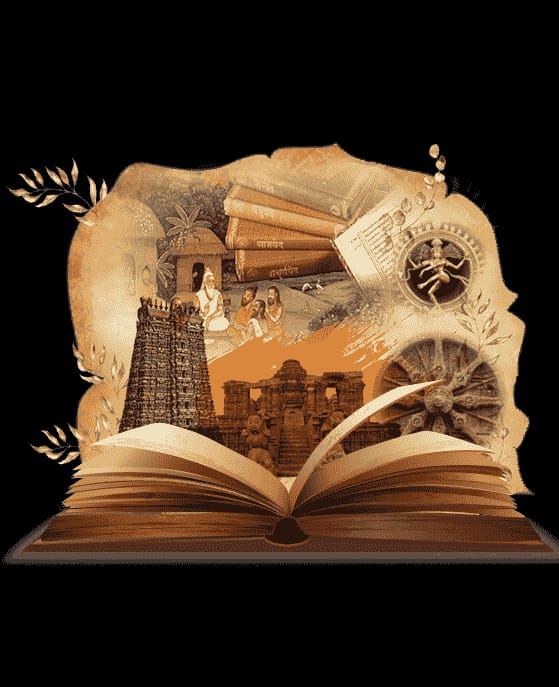The Indic Renaissance
India has been often pontified in public discourse with the diatribe of a developing nation, poverty-stricken economy, creed based on superstition, with its people stuck in a ruckus of socio-economic issues. Have these opinions (or “realities”) remained consistent throughout the course of history? Or are there those who have believed that India’s past was the touchstone of a nation-state? F. Max Müller, one of the founders of the western academic disciplines of Indian studies and religious studies, viewed India as capable of being a Vishwa Guru. In his brief comments upon the character of Hindustan, he wrote:
“If I were to look over the whole world to find out the country most richly endowed with all the wealth, power and beauty that nature can bestow —in some parts a very paradise on earth — I should point to India.” (Müller 1883)
Does India really have enough of its OWN past to be confident about? Must we have pride in our past? The answer to the questions is a yes. Among the many reasons, let us examine two major ones.
India is the grand old civilization where people have always had an open-mindedness to look beyond community or tribe and the fortitude to chant ”Ekam sat bahuda vipra vadanti” (The truth is one, sages call it by different names). Our country has always represented an open-mindedness which looks beyond community or tribe. Therefore, the idea to treat people from different faiths as aliens and not allowing them a fair chance to stay in India was something not even remotely dovetailed to any Indian ideology. In fact, if one were to look at history broadly from a macro-perspective, people from all faiths like Sikhism, Buddhism, Jainism, Zoroastrianism etc. have flourished in India. Another reason is the fact, that between the 5th century to the 11th century, India was considered as one of the most spellbinding, eclectic fountainheads of knowledge, having the Princetons, the Harvards of those times – The Takshashila, The Nalanda, in the heart of Gandahar and Magadh. Some of the greatest philosophers like Adi Shankaracharya, Mandan Mishra, Ramanuja, were born during this period.
If we are not to waver in our pride in the past and Indian culture, what then is the way forward? An Indic Renaissance is the need of the hour.
India needs to excel in the future in terms of technology, science, innovation, economics. However, the country has to simultaneously develop a sense of honour in its past, so as to instil a certain amount of civilisational confidence. This is the Indic Renaissance. We should keep reading what is new and take inspiration from the West. The advancements made in terms of technology and education in different corners of the world are amazing and worth taking note of. They have trained us to think at the margin and act with prudence. Our own written and oral traditions, however, have been neglected in the process. For instance, we look towards the best universities of the world to sharpen our thinking and structure our critical reasoning. However, we must not forget our own traditions which have emphasized the value of a teacher and education over centuries. A nation without a correct sense of history cannot achieve its highest potential. Even if it manages to do so for some time, history will again and again obstruct its development by acting as a nip in the bud.
Author:Yash Gaur
About the Author: Student of IPM-02
References
- Müller, F. M. (1883). India, what Can it Teach Us? A Course of Lectures. United Kingdom: Longmans, Green.
#iimbodhgaya #theenlighteningiim #india #faith #pride
#past #history


